Australian Rock: The Late Seventies
The rise and rise of Skyhooks in 1975 sounded the death knell for the loud progressive blues-style bands that had so dominated Australian rock in the early seventies. The contrast between the two could hardly have been more striking.
In place of denim and long hair, Skyhooks wore colourful and zany stage clothes. Instead of standing in the one spot while the guitarist did a twenty minute improvised solo, Skyhooks put on a highly theatrical show. And instead of drawn out twelve bar blues, Skyhooks performed short, sharp, witty songs with catchy choruses.
Even in the blues bands’ favoured rock festival environment Skyhooks triumphed. Sunbury 75 was the last festival of its kind, attracting a crowd of only 16,000 and the promoters sustaining losses estimated at a quarter of a million dollars. Skyhooks outshone both overseas headliners Deep Purple and the hometown Billy Thorpe. According to Rock Australia Magazine (RAM), Thorpe ‘miked direct from his amps so that to stand within 100 yards of him was to stand beyond the threshold of pain’. A 2JJ concert under the Harbour Bridge in Sydney on the same Australia Day weekend saw Skyhooks consolidate their NSW following and really set up their domination of the scene for the rest of 1975.
Their Living In The 70s album went to the national No. 1 spot in April and stayed there until July. The follow-up, Ego Is Not A Dirty Word was released in July and went to No. 1 in August. By the end of the year Living . . . was well on its way to selling an unprecedented 250,000 copies, while Ego . . . was on its way to a highly impressive 150,000 copies sold.
With the money thus generated, Mushroom Records, headed by Michael Gudinski, became Australia’s most successful independent record company. When Gudinski helped form the country’s largest live booking agency, Premier Artists, later in the year, he established a dominance over the Melbourne music scene that persisted for decades.
Meanwhile, in Sydney, the two top bands of 1974, Sherbet and Hush, continued on their merry way. Hush, described by their manager Peter Rix as a ‘back yard band from Seven Hills (a Sydney western suburb)’, were generating ‘rip roaring pop madness’ at their live shows. At Easter they arranged to swap PAs with New Zealand’s top group, Split Enz. Hush did a New Zealand tour with the Enz’ PA while Sydney got its first look at the Enz. It was not an auspicious debut for the bizarre-looking Kiwis. Billed as a ‘raunchy’ dance band they were nearly booed offstage at the Hordern Pavilion and fared no better at some of Sydney’s dance venues. However a quiet word from a couple of friendly Skyhooks prompted them to try their luck in Melbourne where they received an ecstatic reception. By July they had triumphantly supported Roxy Music on their Australian tour, signed to Mushroom and recorded their debut album, Mental Notes.
AC/DC released their first single, Can I Sit Next To You, Girl in July 1974. Former Fraternity singer Bon Scott joined the band, which featured 17 year old brat guitarist Angus Young (already wearing a school uniform), late in 1974 and a debut album, High Voltage followed in early 1975. Their high energy rock and roll style was already gathering them a following. ‘It’s a lot harder to play something simple in a way that hasn’t been played before than it is to play something complex,’ Angus told RAM at the time.
Their recording contract with Festival having expired, Sherbet meantimes were putting every cent into recording a ‘concept’ album, the tapes of which manager Roger Davies planned to take overseas and sell to record companies. The idea of a band owning their own recordings is quite common now (both INXS and Midnight Oil do it) but in 1975 it was nothing short of revolutionary. Sherbet was able to pay for their own recordings from their tour receipts. Their tours covered the whole country and they opened up areas like North Queensland and the country areas of Western Australia to rock bands.
In the inner-city Sydney suburb of Darlinghurst, a band called Radio Birdman were attracting a following with a fast and furious style of rock, based on surf music and the Detroit sound of groups like Iggy Pop and the Stooges and the MC5. Meanwhile across the bridge—in Chatswood, on Sydney’s lower north shore—a band called Farm, featuring a tall singer with long blond hair and claiming influences from Yes and Focus, had just completed their second east coast tour. The singer was Peter Garrett and the band would become Midnight Oil.
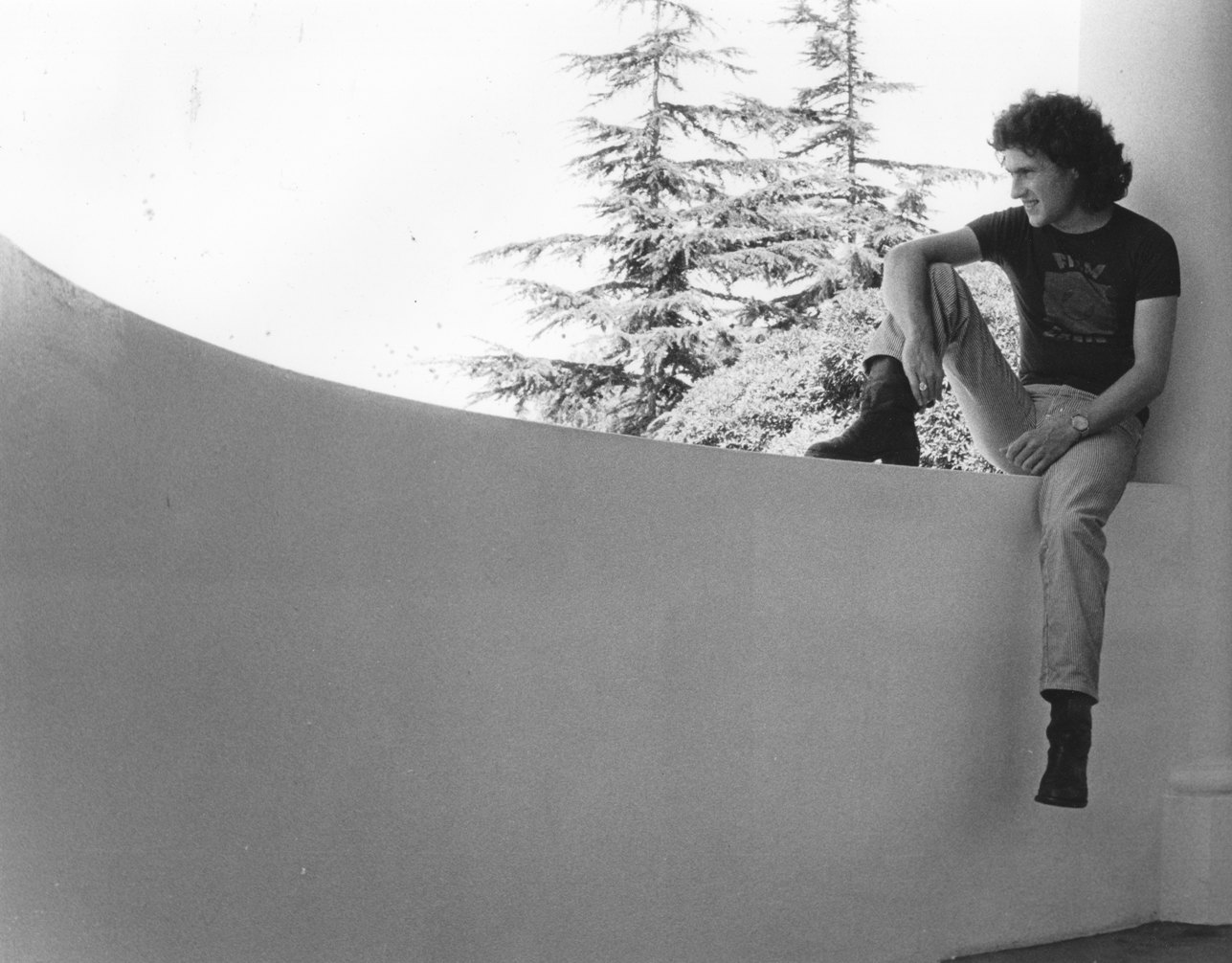
A legal dispute effectively prevented Ross Wilson from writing and recording in 1975 (pic: Claire Leaver)
Ross Wilson, former frontman with Daddy Cool and producer of the first two Skyhooks albums, found himself in court as 1975 drew to a close. Wilson was the subject of an attempted injunction from Robbie Porter, the head of Daddy Cool’s former record company, Sparmac, and publishing company Cool Music. Porter was trying to stop Wilson’s own publishing company, Doo Dah Music, from trading, claiming Doo Dah had been set up to publish the songs of Skyhooks and that these songs included ones written by Wilson, written under his direction or prepared with his collaboration.
Wilson had fallen out with Porter about the time of Daddy Cool’s second album but was under contract to Cool Music until March 1976. Porter had wanted Daddy Cool to stay together and considered the band could have made a million dollars in America. ‘Under my present arrangement with Robbie Porter I am effectively prevented from writing and recording,’ Wilson said at the time. ‘I don’t want to work with Robbie Porter any more.’ The magistrate refused to issue an injunction.
Skyhooks themselves signed an overseas deal with Mercury Records and set out on a farewell Australian tour. Thus ended probably the most cataclysmic year of Australian rock since 1965.
1976 opened controversially with Radio Birdman winning the RAM/Levis ‘Punk Band Thriller’ contest and Sherbet dumping guitarist and songwriter Clive Shakespeare. Gunther Gorman was drafted in as a temporary replacement for Shakespeare, before Harvey James from Ariel joined. The band never really replaced the creative quality and range of the Shakespeare/Garth Porter songwriter partnership however. Shakespeare later claimed he’d been pressing for a ‘proper meeting’ as he felt things around the band were ‘going off the rails’. When the meeting eventually occurred he was handed notice of his sacking.
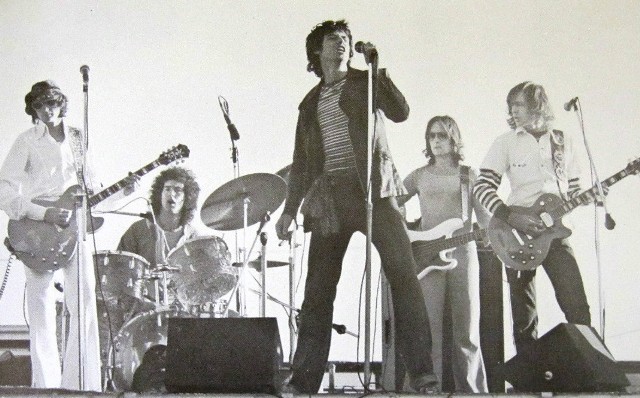
The Angels dropped the ‘Keystone’ and moved from Adelaide to Sydney and a deal with Albert Productions
The Keystone Angels moved to Sydney from Adelaide in February, dropped the ‘Keystone’ and signed to Alberts. Their debut single, Am I Ever Going To See Your Face Again, produced by Vanda and Young, was released in July.
AC/DC headed to the UK in late March with 3 months of touring already lined up and an overseas deal with Atlantic Records. They never really looked back. Split Enz also headed to the U.K. and went into the studios in London with Phil Manzanera of Roxy Music to re-record Mental Notes in April (see this post for my account of their first U.K. tour). Meanwhile Skyhooks were touring the US as support to Uriah Heep. They returned in July, having failed to make much of an impression on the U.S. They released their third album Straight In A Gay, Gay World in August. Sherbet had their greatest overseas success when the single Howzat soared into the British top ten in August.
Ross Wilson, finally free of his Cool Music contract, joined with Glen Wheatley, former bass player with the Masters Apprentices, to form Oz Records. He started working, in a production capacity, with Jo Jo Zep and the Falcons, a Melbourne ‘pub’ band featuring Joe Camilleri, Gary Young from Daddy Cool and Wayne Burt. He also started work on the soundtrack to the movie Stone.
The inner Melbourne pub scene had started around 1974 and by ’76 included such venues as the Station Hotel, Prahran; Martini’s in Carlton and the South Side Six in Moorabin. The Dingoes had been stalwarts of the scene and bands like the Pelaco Brothers, the Bleeding Hearts and Jo Jo Zep were cutting their teeth there. The Pelaco Bros. spawned the Sports late in the year. In early 1977, The Sports recorded an independent EP, Fair Game which received favourable reviews in the U.K. press. The U.K. press soon came to occupy as prominent a position as the local version, and each review, article and photo of an Australian band was seized upon eagerly.
The Little River Band evolved out of the band Mississippi who’d had hits with Will I and Kings Of The World in 1972-73. Singer Glenn Shorrock, formerly with the Twilights and Axiom, joined songwriters Beeb Birtles and Graham Goble and the band’s debut single Curiosity Killed The Cat was released in late 1975. Its slick vocal harmonies were a taste of things to come. With manager Glenn Wheatley landing the band a deal with Capitol in the US, the band racked up three top thirty hits on the American charts in 1977, It’s A Long Way There, Help Is On Its Way and Happy Anniversary.
While America basked in the West Coast harmonies of the Eagles, Fleetwood Mac and others, a musical revolution, the only real one of the seventies, was brewing in Britain. By an uncanny co-incidence one of the seminal records of the early British punk movement was a self-financed single by a Brisbane band. The single was I’m Stranded by the Saints and it became a critic’s fave and definite cult item in London in late 1976. At the recommendation of EMI in London, who had heard I’m Stranded and noticed the favourable media reports, two A & R men from EMI in Sydney went to see the Saints in Brisbane and signed them. After recording in Sydney they went to England in 1977. However on arrival in England they were immediately disowned by everybody concerned because they didn’t fit English preconceptions. Their popularity peak was the single This Perfect Day which peaked in the UK at No. 31, because EMI-UK ran out of stock. EMI-UK denied their incompetence at first and then became quite unco-operative.
In Sydney, Radio Birdman began their legendary summer of ’76-’77 residency at the Oxford Funhouse, on Taylor Square, attracting a growing band of fanatical followers. Critic Toby Creswell described his first experience of a Radio Birdman show in Roadrunner (1979). ‘When I walked into the room there was the singer crawling around on the floor, writhing and screaming in apparent agony with the guitarist sitting astride his hips like an eagle carrying off a blind, crazed animal. The atmosphere was thick with a tempest of raw sound, amplifiers screaming and feeding back randomly.’
Radio Birdman disdained the rock establishment and booked only like-minded bands like the Psychosurgeons and the Hellcats into the venue they ran (the Funhouse). Although they and the Saints evolved independently of the US and UK new wave movements, they heralded the beginnings of the distinctive Australian new wave that was to transform Australian rock by the end of the decade. Inspired by their example and the general excitement of discovering something fresh and energetic, by early 1977 young bands like the Boys Next Door, Teenage Radio Stars, JAB and X formed and started gigging.
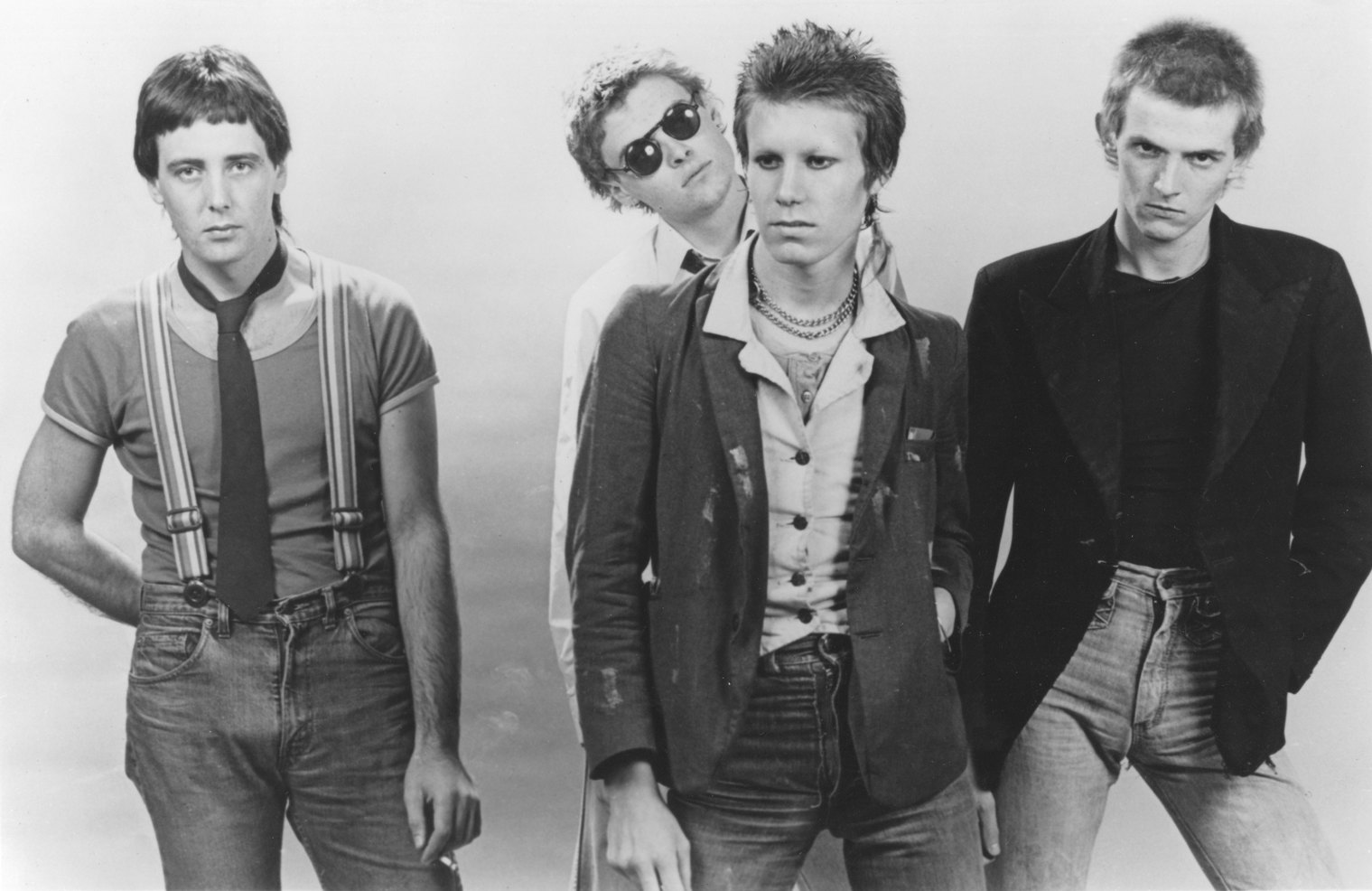
Suicide Records signings the Teenage Radio Stars featured a young James Freud (second from right) and Sean Kelly (far right).
The Mushroom Organisation made its move on the new wave with the Suicide label. They signed a swag of bands, including the Boys Next Door, Teenage Radio Stars (with Sean Kelly and James Freud), JAB and the Negatives and released a compilation album, Lethal Weapons. The label failed. with only the Boys Next Door (the most original outfit) surviving relatively intact.
On the singles charts, Dragon, a New Zealand group who’d first come to Sydney in 1975, had a big year in 1977 with three hits, This Time, Get That Jive and April Sun In Cuba, which was a national top ten hit at the end of the year.
1978 was the year the Australian pub rock boom really got going—especially in Sydney. Bands like Cold Chisel (who’d moved from Adelaide) the Angels and Midnight Oil started drawing big crowds in the inner-city and suburbs with a loud, fast, hard-hitting brand of rock and roll. Dissatisfaction with the agency set-up of the time led to the setting up in October of Dirty Pool by the managers of the Angels and Cold Chisel. Dirty Pool was a management agency that negotiated fees directly with venue owners and promoters. As a result these bands increased their touring receipts dramatically. The Angels’ second album Face To Face came out mid-year and bolstered by the band’s huge live following, started its long run in the album charts. Cold Chisel released their debut album and promptly had their debut single, Khe Sahn, banned for its ‘suggestive’ lyrics.

Cold Chisel and Dirty Pool live agency stablemates the Angels increased their touring receipts dramatically
In Melbourne, the Sports signed to Mushroom Records and released their debut album, Reckless, produced by Joe Camilleri. In October they signed to Stiff Records for the UK and started preparing for a British tour with Graham Parker and the Rumour. The independent scene started to bloom with bands like the Go-Betweens and Numbers (later the Riptides) from Brisbane and the Victims (featuring Dave Faulkner) from Perth releasing self-financed singles.
Radio Birdman made it to Britain after signing with the New York-based Sire Records and recorded an album at Rockfield Studios in Wales before internal squabbling set in and the band splintered.
Split Enz returned from the UK in January 1979. After a year of frantic touring in 1977 (Australia, the US, UK, Holland/Belgium, Australia again, UK again and Holland again) they had been dropped by Chrysalis at the beginning of 1978. They spent most of the rest of the year waiting around to record the album that became Frenzy. It was the first album to feature Neil Finn but was rather a disappointment otherwise.
Mental as Anything made their vinyl debut with an EP, Mental As Anything Plays At Your Party which featured The Nips Are Getting Bigger. The band was the first to play the small Civic Hotel in Sydney which quickly became a mecca for up and coming bands. ‘We’re unashamedly naive musicians,’ the band claimed at the time. ‘Naive, primitive and jealous of musicians that can play.’
The Boys Next Door released a debut album, Door Door for Mushroom, then left the label for the more sympathetic pastures of the Missing Link label. From there they headed overseas to England and changed their name to the Birthday Party, convinced (correctly) that their original sound would be better received in the UK. The Models formed from the remains of the Teenage Radio Stars and JAB and quickly established a Melbourne following. Jo Jo Zep and the Falcons signed to Mushroom and, after three years of brilliant live shows, finally cracked the charts with Hit and Run and the album Screaming Targets. Mi-Sex arrived from New Zealand with a polished and theatrical live show and within twelve months had a No. I single with Computer Games.
The decade ended with the ambitious Pooled Resources tour, a three state jaunt featuring the Angels, Cold Chisel and Flowers, promoted by Dirty Pool. Although bedevilled by accidents, it was a sign that the Australian music industry had acquired the professionalism to properly present bands in a live situation. The boom in live music laid the groundwork for the big recording successes of the eighties.
Main pic; The Boys Next Door in Nick Cave’s bedroom 1978 (photo by Peter Milne)
∗ ∗ ∗ ∗ ∗
The Late Seventies playlist:
∗ ∗ ∗ ∗ ∗
This is part five of my six-part potted history of Australian rock, covering the period from the fifties to the mid-eighties, first published in 1987 in Roll over Beethoven.
Initially produced by Fairfax Magazines, Roll over Beethoven was a project to provide resources for contemporary music education in secondary schools. It was later taken up by AUSMUSIC, which used it as the basis for its music education program.


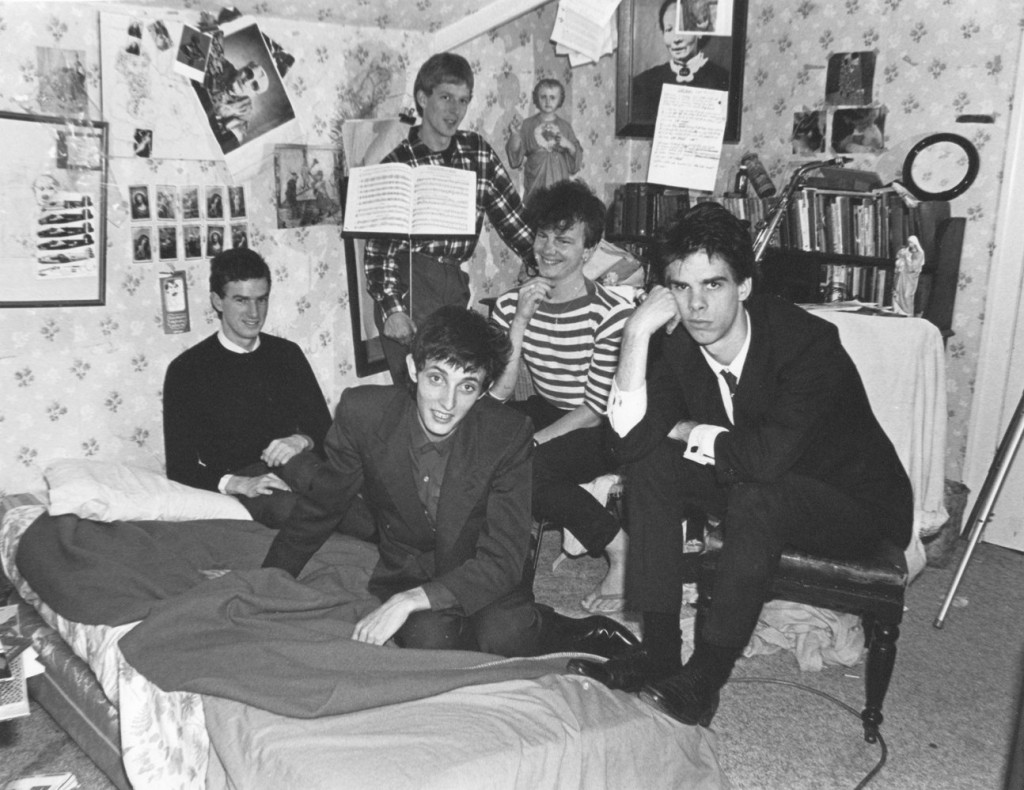
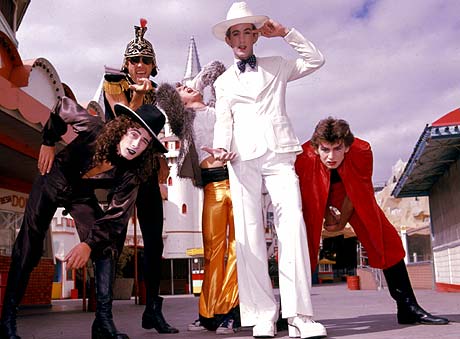
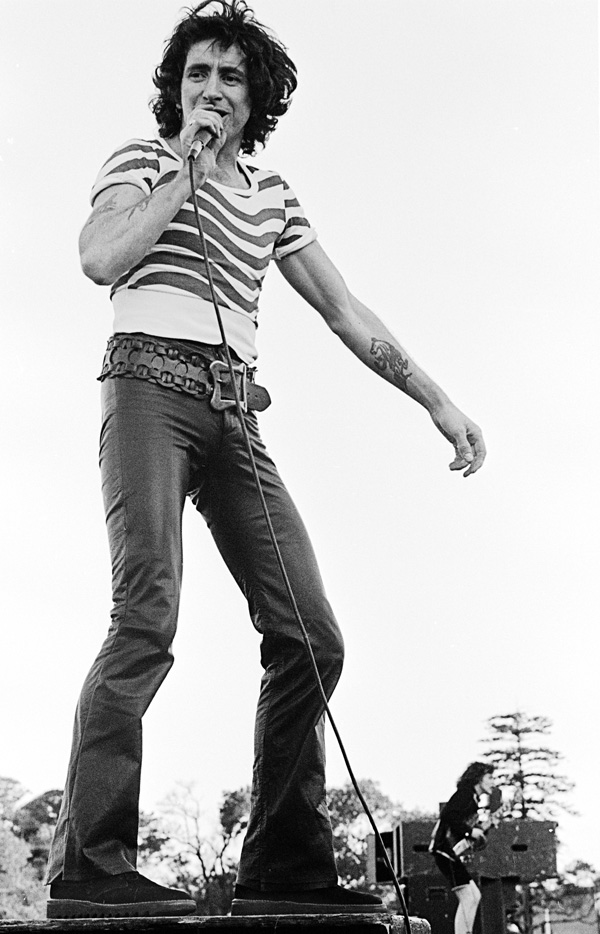
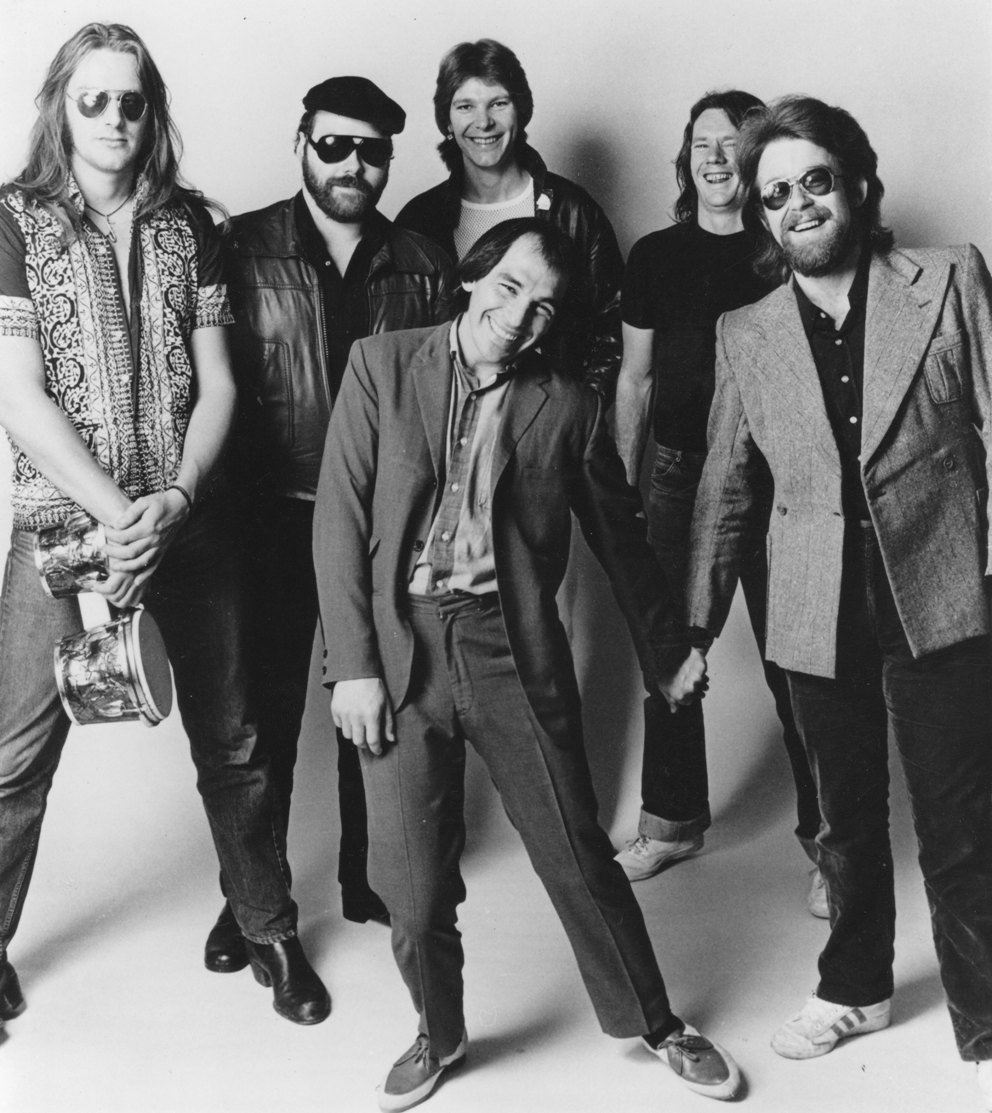
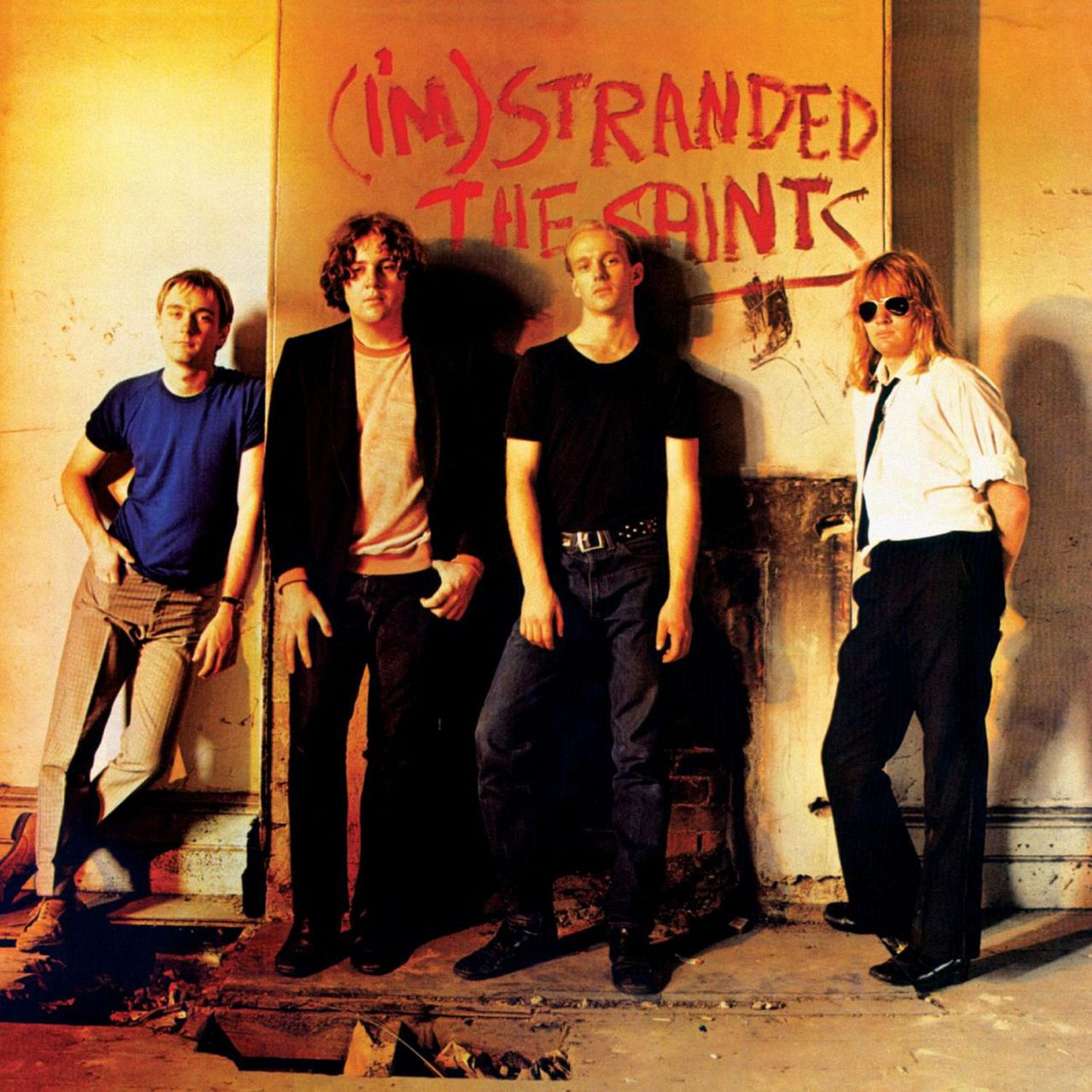
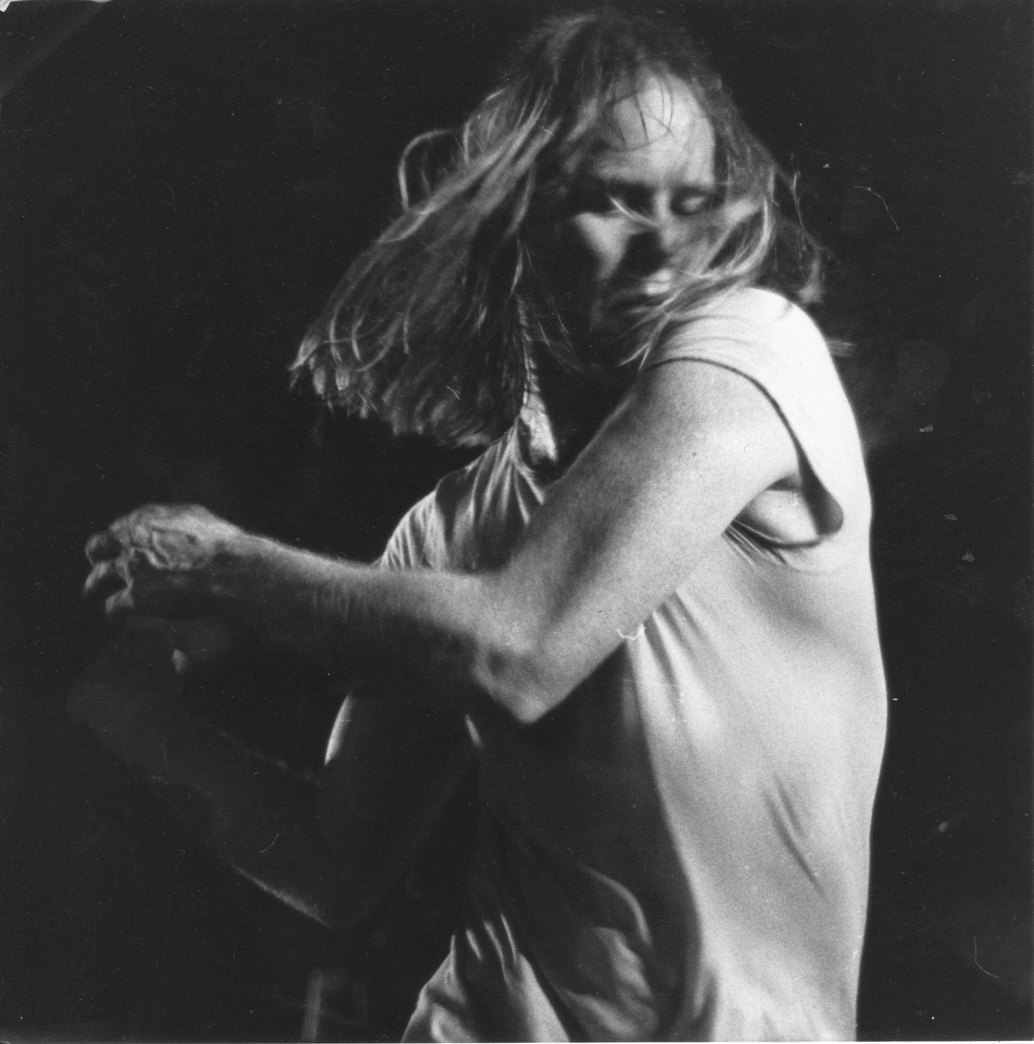

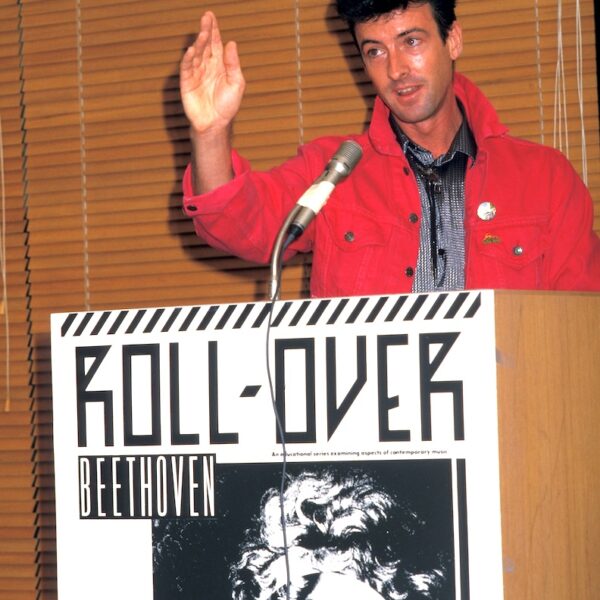
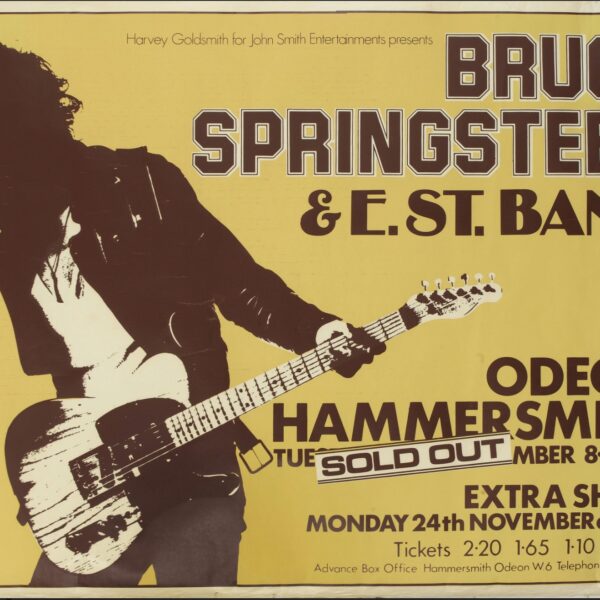
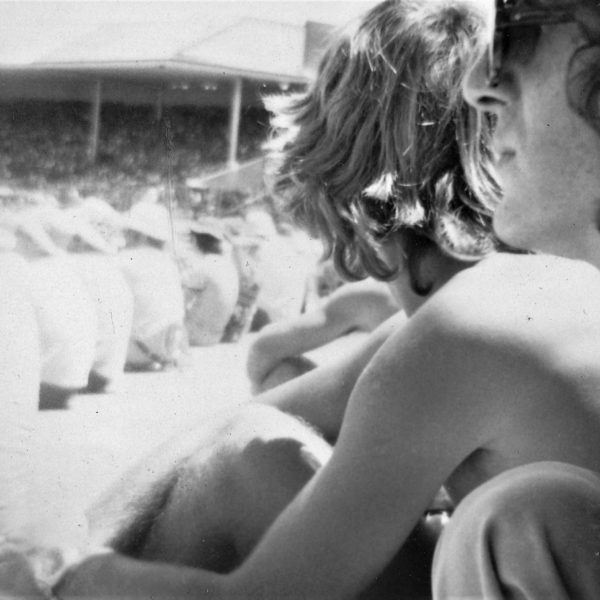
Hi Donald, Hi am looking for any information on the 70’s band Frenzy…I was in it from 1976-79 and played bass. Guitarist Chris Thompson died of drug overdose about 1982. I have a four song demo done at ATA Studios and a live tape from (Long Reef Surf Club) …If you have any info or links I would love to hear about it..Thanks..Russell
Hi Russell – sorry, I don’t have any info on that band.